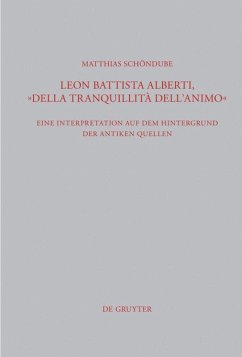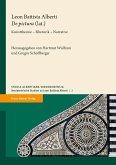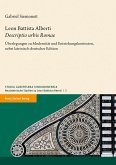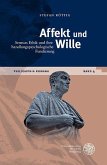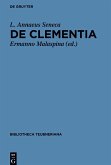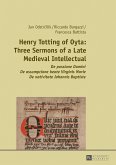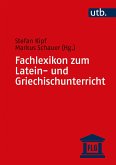Leon Battista Alberti wrote his dialogue Della tranquillità dellâ??animo as a guideline to a life in inner peace. The dialogue is divided into diagnosis, therapy and practical advice and explores the central terms of Stoic philosophy in classical antiquity. Albertiâ??s main orientations were derived from the moral philosophical writings of Seneca, and he provides his dialogue with a large number of quotes and reminiscences from classical antiquity to substantiate his thoughts.
Alberti presents himself as a confident â??uomo universaleâ?, who strives to compete with and outmatch the authorities of classical antiquity.
Leon Battista Alberti verfasst seinen moralphilosophischen Dialog Della tranquillità dell'animo zum Selbsttrost, aber auch als therapeutisches Angebot, aus dem ein jeder die für ihn hilfreiche Lehre ziehen kann. Im Verlauf des Dialogs werden die zentralen Begriffe der stoischen Philosophie diskutiert. Den Hintergrund bilden Senecas Traktat De tranquillitate animi, dessen Trostschriften und die Epistulae morales ad Lucilium. Im Aufbau und in der gedanklichen Abfolge - Diagnose, Therapie, praktische Ratschläge - lehnt sich der Dialog an Senecas De ira an. Die Konzeption des Dialogs orientiert sich an Ciceros Dialogen. Zahlreiche Topoi aus der antiken Konsolationsliteratur werden adaptiert. Der Dialog zeichnet sich durch eine enorme Fülle von antiken Zitaten aus, die je nach Bedarf wörtlich zitiert, übersetzt, reduziert, erweitert oder abgewandelt werden. Die antiken Autoren werden als die unumstößlichen Autoritäten angesehen, deren Worte Wahrheitscharakter haben. Exempla veranschaulichen plastisch Albertis Gedanken. Zudem ist es Alberti daran gelegen, seine umfassende, enzyklopädische Bildung zu dokumentieren und sich selbstbewusst mit den antiken Vorbildern auf eine Stufe zu stellen und mit ihnen in Konkurrenz zu treten.
Alberti presents himself as a confident â??uomo universaleâ?, who strives to compete with and outmatch the authorities of classical antiquity.
Leon Battista Alberti verfasst seinen moralphilosophischen Dialog Della tranquillità dell'animo zum Selbsttrost, aber auch als therapeutisches Angebot, aus dem ein jeder die für ihn hilfreiche Lehre ziehen kann. Im Verlauf des Dialogs werden die zentralen Begriffe der stoischen Philosophie diskutiert. Den Hintergrund bilden Senecas Traktat De tranquillitate animi, dessen Trostschriften und die Epistulae morales ad Lucilium. Im Aufbau und in der gedanklichen Abfolge - Diagnose, Therapie, praktische Ratschläge - lehnt sich der Dialog an Senecas De ira an. Die Konzeption des Dialogs orientiert sich an Ciceros Dialogen. Zahlreiche Topoi aus der antiken Konsolationsliteratur werden adaptiert. Der Dialog zeichnet sich durch eine enorme Fülle von antiken Zitaten aus, die je nach Bedarf wörtlich zitiert, übersetzt, reduziert, erweitert oder abgewandelt werden. Die antiken Autoren werden als die unumstößlichen Autoritäten angesehen, deren Worte Wahrheitscharakter haben. Exempla veranschaulichen plastisch Albertis Gedanken. Zudem ist es Alberti daran gelegen, seine umfassende, enzyklopädische Bildung zu dokumentieren und sich selbstbewusst mit den antiken Vorbildern auf eine Stufe zu stellen und mit ihnen in Konkurrenz zu treten.

